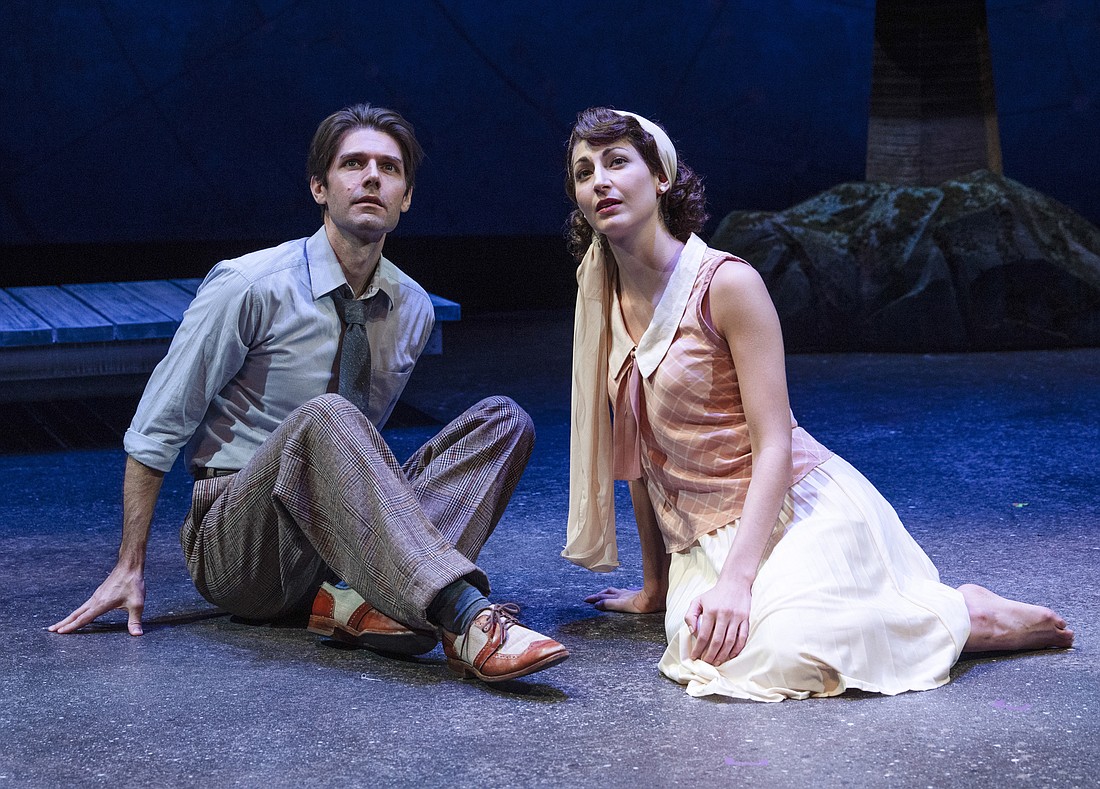- November 23, 2024
-
-
Loading

Loading

The play “Theophilus North” was born in the pages of Thornton Wilder’s 1973 novel. The title character was the author’s double in more ways than one. Wilder’s book explored his doppelganger’s quest to find his true direction in life. In 2006, Matt Burnett distilled that episodic odyssey for the stage. Director Laura Braza is bringing it to the FSU/Asolo Conservatory for Actor Training stage in the latest Dog Days Theatre show. Braza is a freelance director and the artistic producer of the Milwaukee Repertory Theater, and to her, true adventure begins at home.
He’s a man fleeing from himself, his calling as a gifted writer and the risk of connecting to other people. But in his mind, Theophilus is running toward adventure. For the past four years, he’s been teaching at a school in New Jersey. In 1926, he quits in a grand gesture and decides to travel the world. He borrows $25 from his neighbor, buys an old car and heads north. But he only gets 180 miles, and breaks down in Newport, R.I.
He thinks it’s a sedentary occupation. Theophilus wants to be an adventurer. As he sees it, that can only happen someplace else, like Rome, China, Egypt.
Certainly not. Theophilus thinks his life can only begin in those exotic locations. I have to admit, I thought like that when I was younger. “My life would only start in New York City.” When I actually got there, I thought, “OK. Now what?”
Exactly.
People! Because he’s stuck in Newport, Theophilus has to take odd jobs for pocket money. He buys a bicycle to get around. He reads to people with bad eyesight, gives tennis lessons (after learning tennis from a book) and teaches French. He winds up developing strong connections with those people. Like Theophilus, they’re all running from who they are. He solves their problems and helps them find themselves. In the process, he gets invested in their life stories.
Well, yes and no. Wilder was a twin, but his brother died in childbirth. His twin would have been named Theophilus.
Yes. And Wilder carried that survivor’s guilt his whole life. It had a great impact on who he became, both as a man and a writer. He ended up writing the imaginary memoirs of his brother if he’d lived.
I really couldn’t answer. I’ve never seen the movie! I make a point of avoiding other adaptations of things I’m directing, but I can say that the playwright tells the story in a magical way.
Well, Matthew Burnett’s stage adaptation draws on ideas from “Our Town.” So, Theophilus rides his bike to what he calls the various cities of Newport. The objects and landmarks are all played by people — the trees, the road signs and so on. The audience has to participate in the imaginative act of creating the play — and that’s the magic and the fun of it! And the play moves so quickly, traditional stage sets would’ve been impossible. We had 30-some locations in the first act.
Great. We have a lovely cast, and everyone’s so willing to try things. Brett Mack is wonderful in the title role. He’ll say things like, “I don’t know what this moment is about. We’ve got to get to the heart of it!”
I’d say that it’s Thornton Wilders love letter to the quirky people he observes and the process of writing itself. Writing truly is an adventure, because it depends on connecting with people. That’s always a risk — but it’s where the adventure always begins.